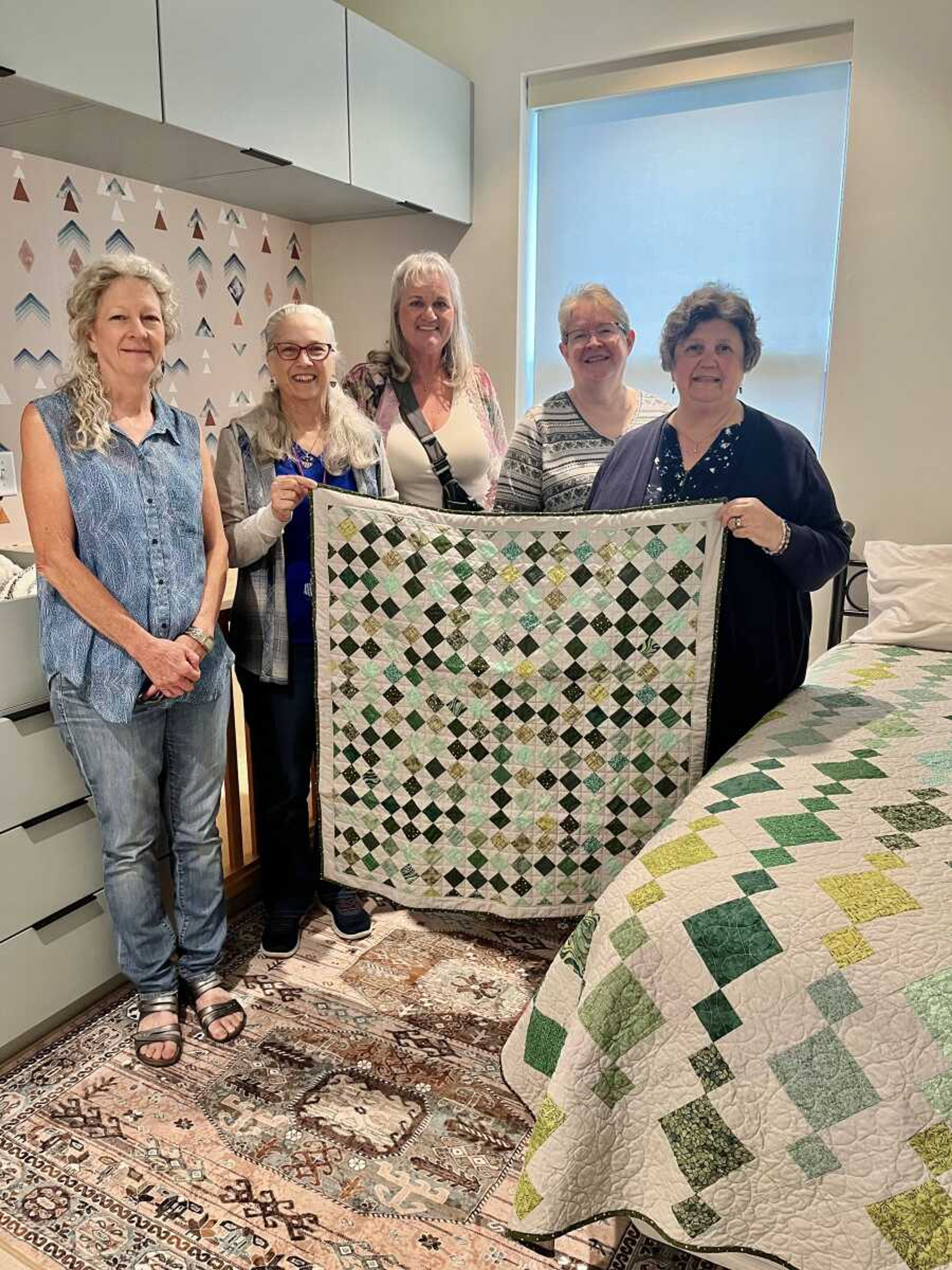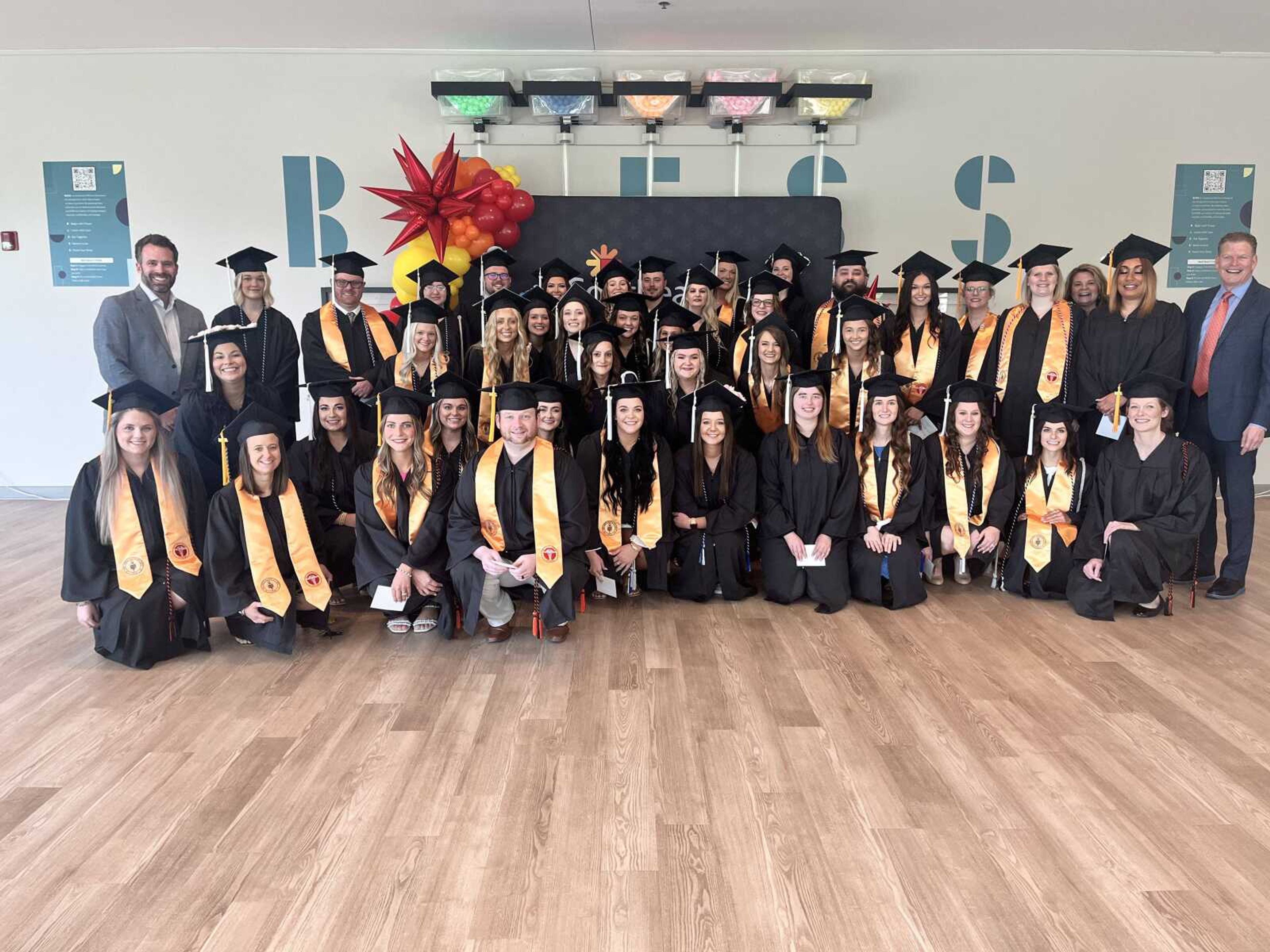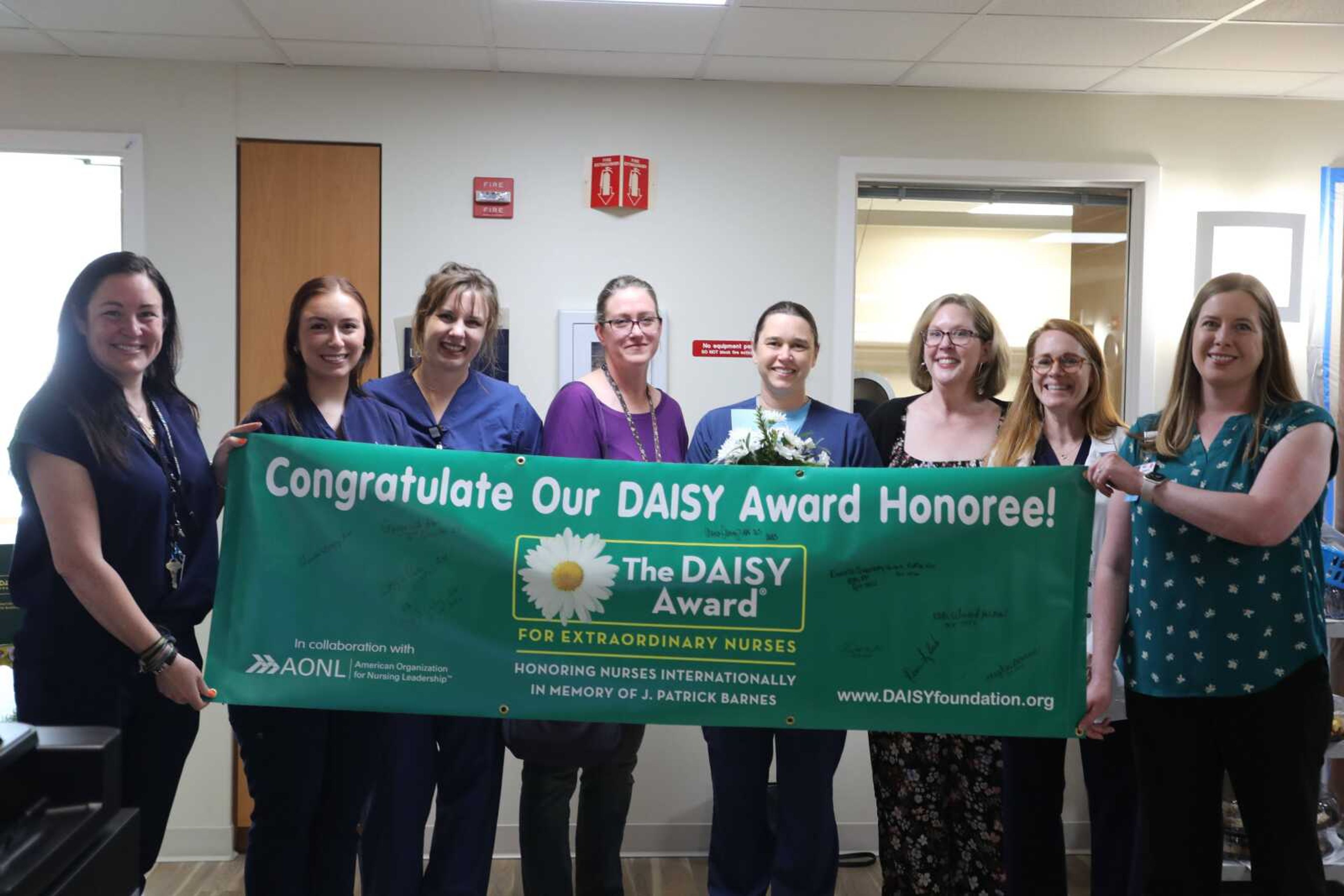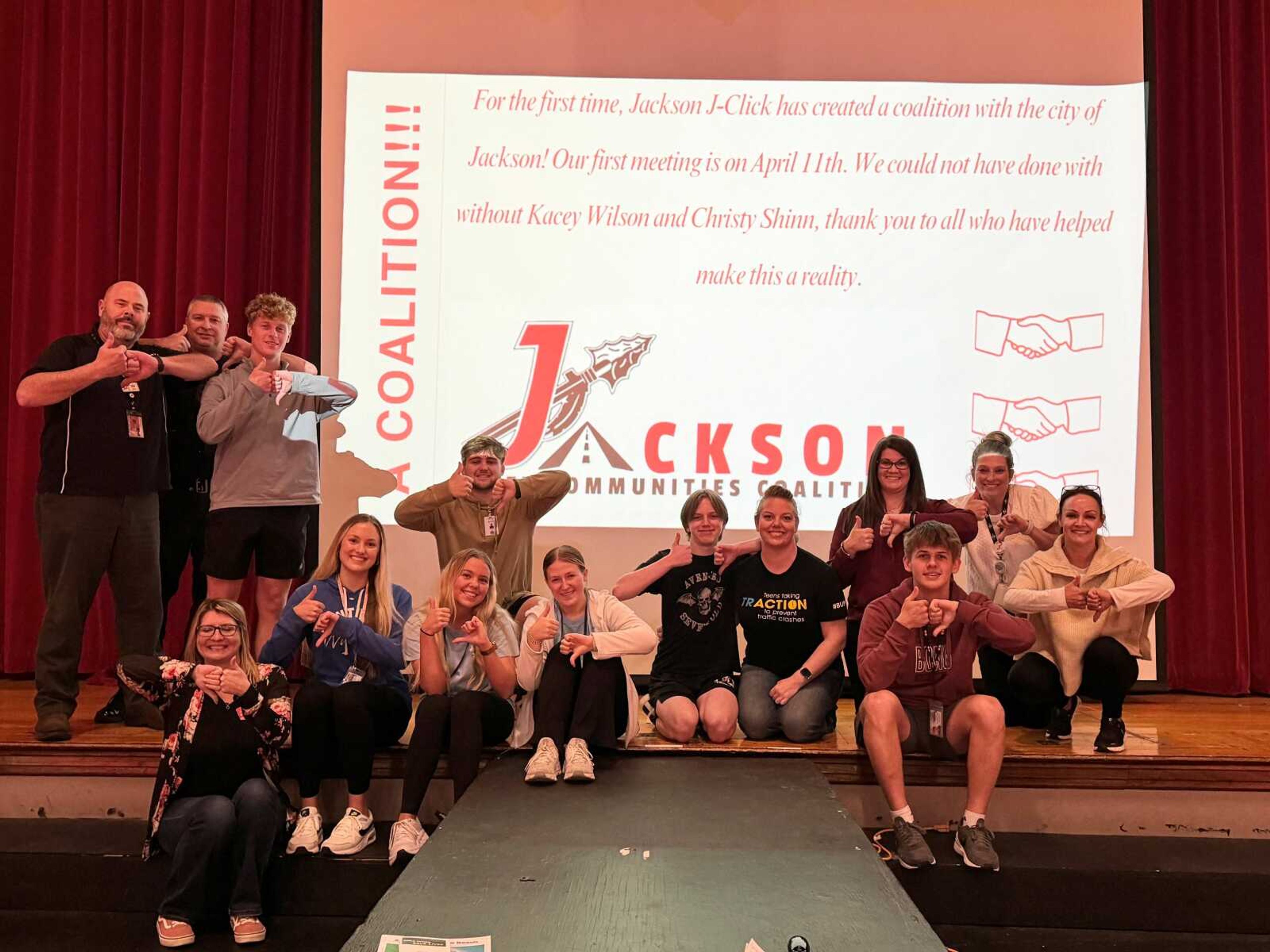The Arrival of the Bookmobile
The Arrival of the Bookmobile By Mary Koeberl Rechenberg Abraham Lincoln once said, “The things I want to know are in books, my best friend is the man who’ll get me a book I ain’t read.” For the people who felt the same way about books as Abraham Lincoln in Perry, Cape Girardeau and Scott counties, the acquisition of the first bookmobile was a godsend. Schools were not reorganized, so one-room schools in the counties was the rule. Books were few and far between, as...
The Arrival of the Bookmobile
By Mary Koeberl Rechenberg
Abraham Lincoln once said, “The things I want to know are in books, my best friend is the man who’ll get me a book I ain’t read.”
For the people who felt the same way about books as Abraham Lincoln in Perry, Cape Girardeau and Scott counties, the acquisition of the first bookmobile was a godsend. Schools were not reorganized, so one-room schools in the counties was the rule. Books were few and far between, as
there were no libraries in these counties. Public libraries were located in a few cities in the state and
served only the people in that city.
Women’s Extension Clubs in the 1950’s became the voice that spoke out about the lack of
reading material and services that people in rural communities endured. They were adamant that a
county library be established even in the areas that were often thought of as economically deprived and
the population spread so thin that libraries had never been considered.
After contacting the Missouri State Library, a demonstration bookmobile was sent to travel over the region. It visited rural schools, post offices, stores and only a few homes, making a huge positive impact. Children and adults marveled at the sight of so many books-more than they’d ever seen or dreamed of all contained in a wonderful vehicle in front of their school.
On April 5, 1955, citizens overwhelmingly voted to allow a tax of 1 mill (10 cents) per $100
evaluation to be collected to establish county libraries. Five community members were appointed to be board members, along with the Superintendent of Schools in each county, to plan, organize and set up library service in their county. Each of these county boards elected their own officers. The three county boards met as a group, in Jackson, making up the regional board.
It was decided that by combining the three county libraries into one regional library the tax
money would be better used. A central center for buying and processing books, would be located in Jackson, which would reduce costs and one bookmobile could serve all three counties. The state library offered a gift of 7000 books and the loan of a bookmobile, until one could be purchased. The bookmobile was the first service offered by the newly organized Riverside Regional Library.
Mr. and Mrs. Earl Oldham of Burfordville, were employed to staff the bookmobile, after first
helping to get the books ready that would supply it. An audio-visual department was established early
on by the library. Films and projectors would be carried on the bookmobile. Movies were often shown
to school children along the route. Educational materials for the blind could be ordered from the St. Louis School for the Blind. It’s no wonder rural school children and teachers looked forward to
the arrival of the bookmobile.
Mrs. Jackie Ludwig, a teacher from the Oak Ridge Schools, remembers substituting for Mrs. Oldham on the bookmobile for three summers in the late 1950’s. “When the bookmobile originated there were many one-room schools scattered throughout the county. Roads were narrow and often unpaved. You never knew what would happen. On one occasion while we were waiting in front of a school near Lithium, in Perry County, we had quite a scare. A fox, being chased by a young boy with a gun, came running towards the bookmobile. We slammed the door shut. The fox turned and ran into a nearby woodshed, where the boy shot it. He told us it probably had rabies.
The bookmobile, which was a top-heavy vehicle, would lean precariously when going around
steep curves in the road, making you think it would turn over. Bathroom needs were a problem, since we would often be out in the middle of nowhere, and there was no bathroom on the bookmobile.
You never knew what each day would bring. But, I enjoyed it, and the people we visited were so happy to see us.” She said.
“Since it was summer, we met people at stores, buildings in the community where people would
meet during the week and places along the roadside, instead of schools. It was interesting to learn all
about the these places. We would even eat at Lamberts when we were in the Sikeston area once a month. Usually we brought a sandwich or a snack for lunch.
Our day went from 8:00 to about 3:00 pm. People would want certain kinds of books and we
would try to get them. If we didn’t have the ones they wanted, we would offer to try and get them and
mail them to the people. At the end of the route each day, we had to restock the shelves for the next day.
Trying to keep track of the books that we left at stores and other businesses was difficult, because
people often didn’t take time to check out the books. They just picked them up off the shelf and took
them home. Several books were never returned or lost. At some stops no one came out to get on the
bookmobile. We waited the appointed time then moved on to the next stop. Years later, I was asked to be a member of the library board. I ended up staying on the board for 28 years. It was a great learning experience.”
Additional service centers or branches of the library opened up in the 1960’s and 1970’s in
towns such as Illmo (later Scott City), Benton, Oran, Perryville and Altenburg. The bookmobile stayed in operation until 1974. By that time many of the rural schools had been consolidated into larger schools that could provide their own books. The warmth, friendliness and appreciation of everyone on the bookmobile runs made its operation a tremendous success and a wonderful experience for children and adults.
Mary Koeberl Rechenberg, author and former coworker with Jackie Ludwig in the Oak Ridge School District, remembers visiting the bookmobile in the 1950’s, (fourth through eighth grade) while attending Friedheim Lutheran School in Friedheim, Mo.
Photo: Curtesy of the Riverside Regional Library
Connect with the Southeast Missourian Newsroom:
For corrections to this story or other insights for the editor, click here. To submit a letter to the editor, click here. To learn about the Southeast Missourian’s AI Policy, click here.










